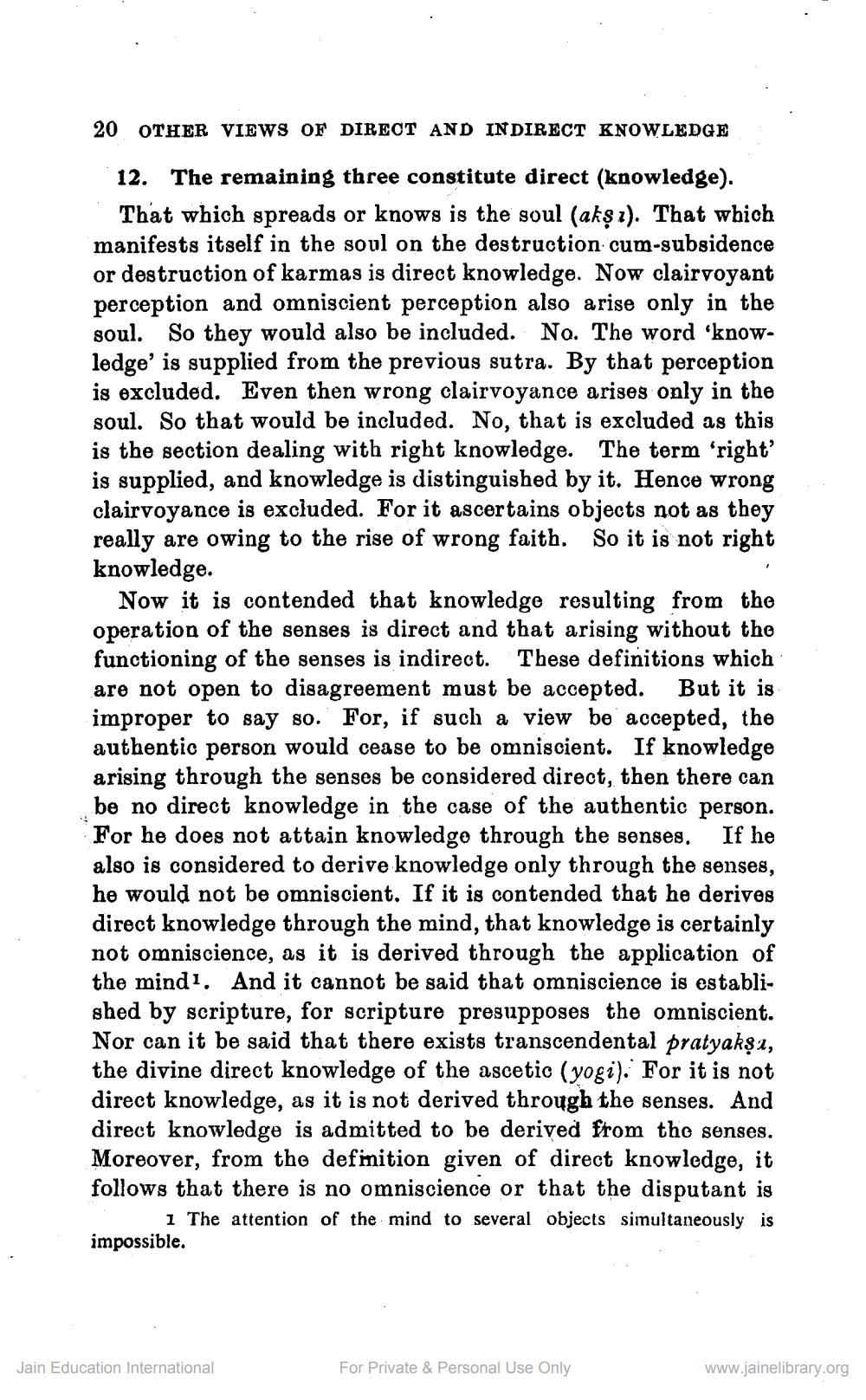________________
20 OTHER VIEWS OF DIRECT AND INDIRECT KNOWLEDGE
12. The remaining three constitute direct (knowledge).
That which spreads or knows is the soul (akş z). That which manifests itself in the soul on the destruction cum-subsidence or destruction of karmas is direct knowledge. Now clairvoyant perception and omniscient perception also arise only in the soul. So they would also be included. No. The word 'knowledge' is supplied from the previous sutra. By that perception is excluded. Even then wrong clairvoyance arises only in the soul. So that would be included. No, that is excluded as this is the section dealing with right knowledge. The term 'right' is supplied, and knowledge is distinguished by it. Hence wrong clairvoyance is excluded. For it ascertains objects not as they really are owing to the rise of wrong faith. So it is not right knowledge.
Now it is contended that knowledge resulting from the operation of the senses is direct and that arising without the functioning of the senses is indirect. These definitions which are not open to disagreement must be accepted. But it is improper to say so. For, if such a view be accepted, the authentic person would cease to be omniscient. If knowledge arising through the senses be considered direct, then there can be no direct knowledge in the case of the authentic person. For he does not attain knowledge through the senses. If he also is considered to derive knowledge only through the senses, he would not be omniscient. If it is contended that he derives direct knowledge through the mind, that knowledge is certainly not omniscience, as it is derived through the application of the mindi. And it cannot be said that omniscience is established by scripture, for scripture presupposes the omniscient. Nor can it be said that there exists transcendental pratyakşı, the divine direct knowledge of the ascetic (yogi). For it is not direct knowledge, as it is not derived through the senses. And direct knowledge is admitted to be derived from the senses. Moreover, from the definition given of direct knowledge, it follows that there is no omniscience or that the disputant is
1 The attention of the mind to several objects simultaneously is impossible.
Jain Education International
For Private & Personal Use Only
www.jainelibrary.org




